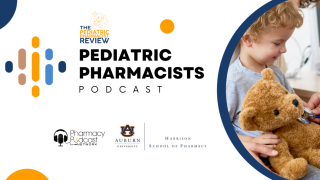Steroids at Discharge Could Become COVID-19 Standard of Care

Researchers recently reported in the peer-review journal Frontiers in Medicine that patients prescribed steroids had a lower risk of death post-hospital discharge than those who didn't receive the anti-inflammatory medicines.
“Our study is the first to examine the relationship between inflammation during hospitalization for COVID-19 and mortality after the patient has ‘recovered’,” said first author Prof Arch G Mainous III, vice chair for research in the Department of Community Health and Family Medicine at the University of Florida Gainesville, in a press release issued on May 12, 2022.
“Here we show that the stronger the inflammation during the initial hospitalization, the greater the probability that the patient will die within 12 months after seemingly ‘recovering’ from COVID-19.”
Mainous said: “Many infectious diseases are accompanied by an increase in inflammation. Most times the inflammation is focused or specific to where the infection is.”
“COVID-19 is different because it creates inflammation in many places besides the airways, for example in the heart, brain, and kidneys. High degrees of inflammation can lead to tissue damage.”
‘Oral steroid prescriptions at discharge among these hospitalized COVID-19 patients were found to be associated with a lower risk of death post-discharge.’
‘The results of this study reaffirm the importance of post-acute COVID-19 sequelae.’
Mainous and colleagues studied the de-identified electronic health records of 1,207 adults hospitalized in 2020 or 2021 after testing positive for COVID-19 within the University of Florida health system, and who had been followed up for at least one year after discharge.
As a proxy for the severity of systemic inflammation during hospitalization, they used a common and validated measure, the concentration in blood of the molecule C-reactive protein (CRP), secreted by the liver in response to a signal by active immune cells.
As expected, the blood concentration of CRP during hospitalization was strongly correlated with the severity of COVID-19: 59.4 mg/L for hospitalized patients who didn’t require supplemental oxygen, 126.9 mg/L for those who needed extra oxygen through non-invasive, non-mechanical ventilation, and 201.2 mg/L for the most severe cases, who required ventilation through a ventilator or through extracorporeal membrane oxygenation.
COVID-19 patients with the highest CRP concentration measured during their hospital stay had a 61% greater hazard – corrected for other risk factors – of dying of any cause within one year of discharge from the hospital than patients with the lowest CRP concentration.
Importantly, the authors showed that the elevated hazard of death from any cause associated with severe inflammation was lowered again by 51% if the patient was prescribed anti-inflammatory steroids after their hospitalization.
These results mean that the severity of inflammation during hospitalization for COVID-19 can predict the risk of subsequent serious health problems, including death, from ‘long COVID’.
They also imply that current recommendations for best practice may need to be changed, to include a more widespread prescription of orally taken steroids to COVID-19 patients upon their discharge.
“When someone has a cold or even pneumonia, we usually think of the illness being over once the patient recovers. This is different from a chronic disease, like congestive heart failure or diabetes, which continue to affect patients after an acute episode.”
“We may similarly need to start thinking of COVID-19 as having ongoing effects in many parts of the body after patients have recovered from the initial episode,” said Mainous.
“Once we recognize the importance of ‘long COVID’ after seeming ‘recovery’, we need to focus on treatments to prevent later problems, such as strokes, brain dysfunction, and especially premature death.”
The current U.S. NIH recommendations for the care of COVID-19 hospitalized patients recommend steroids only for patients who need supplemental oxygen.
The finding that the use of steroids prescribed upon discharge from the hospital and the corresponding reduced risk of mortality indicate that treating inflammation after the acute COVID-19 episode may act as a buffer to the downstream mortality risk.
‘Perhaps this requires a reconceptualization of COVID-19 as both an acute disease and potentially a chronic disease because of the lingering risks,’ stated these researchers.
Weaknesses in the study include it is a limited number of cases at one institution and the data are observational. Thus, the analyses related to steroids and downstream mortality require a clinical trial to confirm these suggestive findings. Third, the researchers did not have death certificates available to them to compute cause of death.
Steroids in severe disease needing respiratory assistance in hospitalized patients clearly saves lives. Steroids in milder cases does not have the proof and may be detrimental.
The study authors declared that the research was conducted in the absence of any commercial or financial relationships that could be construed as a potential conflict of interest.
PrecisionVaccinations publishes fact-checked research-based news.
Our Trust Standards: Medical Advisory Committee
























